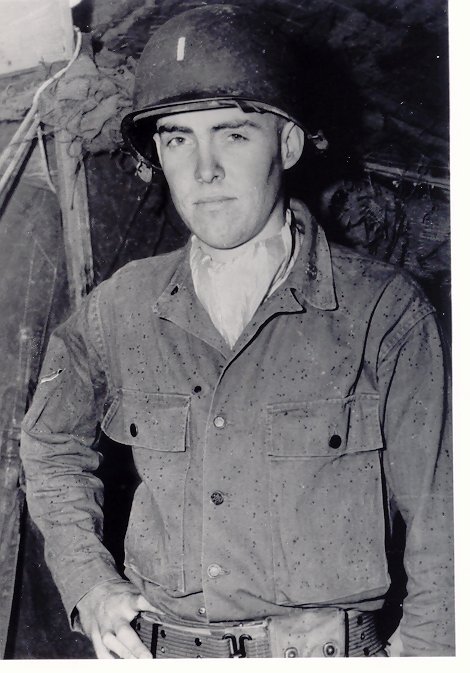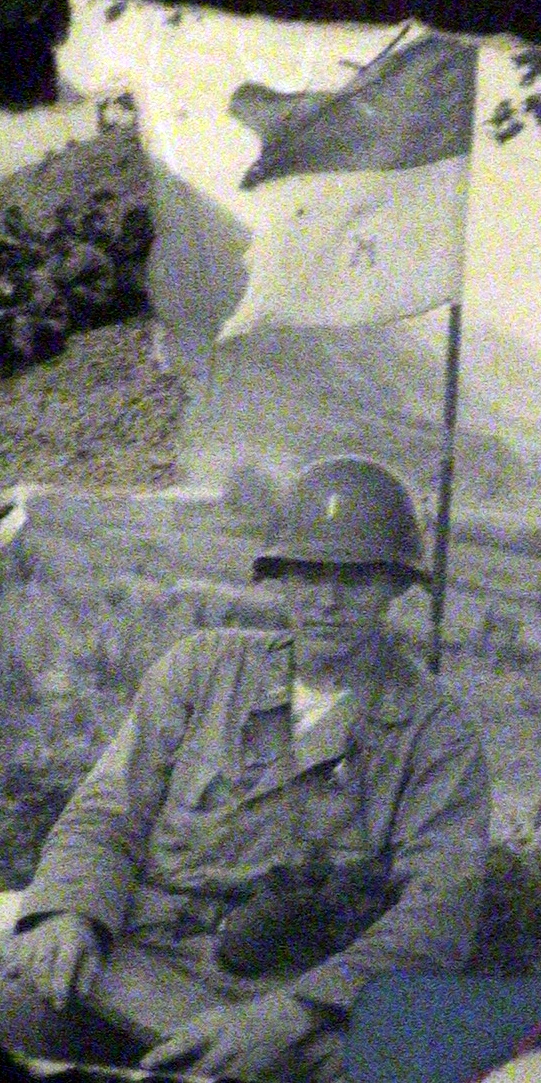My Brief Tour as a General's Aide
About this time of turbulent transition in the 8th Army units top to bottom were undergoing change. United Nations forces, including the dominant US Army forces in Korea, arrayed across the the peninsula, generally south of the 38th Parallel had shown they were capable of slowing the massed Chinese Communist Armies from pushing much further south.
One Year Rotation back to the US Mainland for the vast majority of US Soldiers caused a loss of the most combat experienced officers and men. And in many cases, like that of Captain Flynn's, experienced officers were promoted to higher headquarters, and lost to the companies or battalions they had been in.
Then one day I was tapped to become the Aide-de-camp for General Brigadier Elwyn Post, the 1st Cavalry Assistant Division Commander.
This was a big surprise for me, with still less than one year's commissioned service. But apparently, he looked around the Division for a young officer who was promising, but with combat experience, for he, Post, only reached Korea and his assignment in 1951 - he was not there in the actions during 1950. He had graduated from West Point in 1923, and was promoted to general in WWII.
I really hated to be pulled out of my Company K where I might be in line to command it during all the losses of Captains and turmoil.
Well, I tried it, and rode around with the General in his Jeep as he familiarized himself with the Division. Assist Commanders are usually there to get experience at that level as a new General, but also to be instantly available if the Major General commanding gets wounded or killed.
Being in the Division Command Headquarters, I was able to use a typewriter for some of my longer letters home.
And I tried, for the first time ever, to send at least 15 rolls of film I had taken enroute to and in Korea. I had been able from time to time to take pictures, even including combat-aftermath photoes, some with dead enemy soldiers in them.
Now I am not sure, but either there was a blanket censorship at 8th Army, or they simply got lost in the flood of mail to and from Korea. But none of the rolls of film ever showed up at my mothers Hotel in Denver.
 |
As a 1st Lieutenant Aide now, wearing a Cavalry Yellow scarf and the Collar Insignia to match
I had little fear of driving close to units in contact, and twice led the general too close for HIS comfort. He sensed I really wanted to go back to my unit, and continue to fight the war. So reluctantly after a month of being an aide, he let me go.
But after visiting me back in my unit and on a hill, the General ordered that I go on R&R even before I would normally go, in another month or so. He even invited me to visit his wife's home in Yokohama on my 5 days 'R&R' (rest and recuperation) leave. I think he also wanted me to meet his 12 year old son there. For later I found out his son also went to West Point and did very well as an officer.
I instead went to Tokyo, had a ball, some of the time with Classmate Frank Duggins who knew how to party and find the girls. And I even bought a Japanese Nikon Camera - again, like I bought a Rolliflex camera in Germany after the war. Both defeated countries started producing excellent, and still cheap 35mm color cameras.
But one thing was evident. I could not take pictures while commanding my platoon.
So after R&R I returned to Company K, 7th Cav, put my new camera in my personal footlocker stored at the Company Supply level and was notified I was being made the Company K, Commander - following Flynn, Ryan, and Lewis. Capt Lewis was moved into a Staff Officer's - rather than another command - slot.
A very, very great leap of faith by my commanders, and I think by Colonel Gilmer, the Regimental Commander.
Now, with the fillers that had come into the theater, I now commanded up to 200 men, in their 3 rifle companies, one weapons company, and the headquarters company. It was not until another month that I also got six officers. One of whom was a Classmate of mine, Lieutenant John Ross. He became a Rifle Platoon Leader.
We started getting ready for more combat - as the goal of the 8th Army remained to at least push the Chinese and resurgent North Korean Army back across the 38th Parallel, restoring the original national boundary -while the Chinese Government remained bent on driving south far enough to occupy Seoul again and overturn the government of South Korea, if not occupy all the peninsula.
I was ready for war again, even if the American public was not. They were getting frustrated at the inconclusiveness of this war.
My mother was typical. She even wrote a letter to Presidential Candidate Dwight Eisenhower urging him do something, for she saw that I was always fighting over the same hills.
I did not know that until I was back in the US for many months. And even then it was not until I went through her papers after she died in 1968, that I saw how busy she was.

